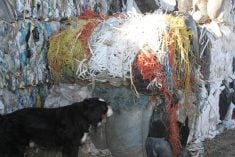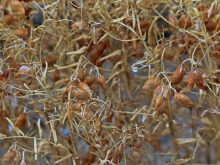REGINA – Saskatchewan school boards have made all the cuts they can, delegates to the Saskatchewan School Trustees Association annual convention were told by their president last week.
“Boards have cut to the bone. But there comes a point at which we are actually cutting into the marrow and endangering the health and effectiveness of our education system,” said Dorothy Fortier.
Property tax is bearing too much of the cost of education as a result of funding cuts by the province, she said. Fortier called on the government to relieve the pressure.
Read Also

Canadian farmers need level playing field for regulations – says Minister MacDonald
Federal agriculture minister Heath MacDonald is urging the Canadian Food Inspection Agency and the Pest Management Regulatory Agency to speed up their decision making.
“We have received assurances from the present government that they would move in this direction, and I quote, ‘when conditions are suitable.’
“We must now renew our efforts to work with our partners in local government. We must work consistently and together to send a very clear message: That the time has come for the government to show us, in a very concrete manner, that they are moving to relieve the burden which has been placed on property taxpayers in Saskatchewan.”
Education minister Pat Atkinson said the boards already know there will be no funding cuts in 1995, but budget preparations for 1995-96 have not yet been finalized.
“I do know that school boards are stretched, that school boards, not unlike many organizations, have really genuinely helped the province of Saskatchewan and our government get the deficit situation under control,” Atkinson said. “We can now look at alternatives for various organizations and third parties that have done their very best to help us get out of the woods.”
Dwain Drew, president of the Saskatchewan Teachers’ Federation, said funding cuts are hurting initiatives like integration of special needs students into regular classrooms.
Years of cuts are now becoming visible in classrooms, he said, in the form of fewer teachers, larger classes, inadequate supplies and equipment and deteriorating facilities.
“Teachers regret that they can no longer say that all students in our province have access to a high quality education. Economic scarcities have led to inequalities and inadequacies for which even the most dedicated, hard-working teaching force cannot compensate.”















